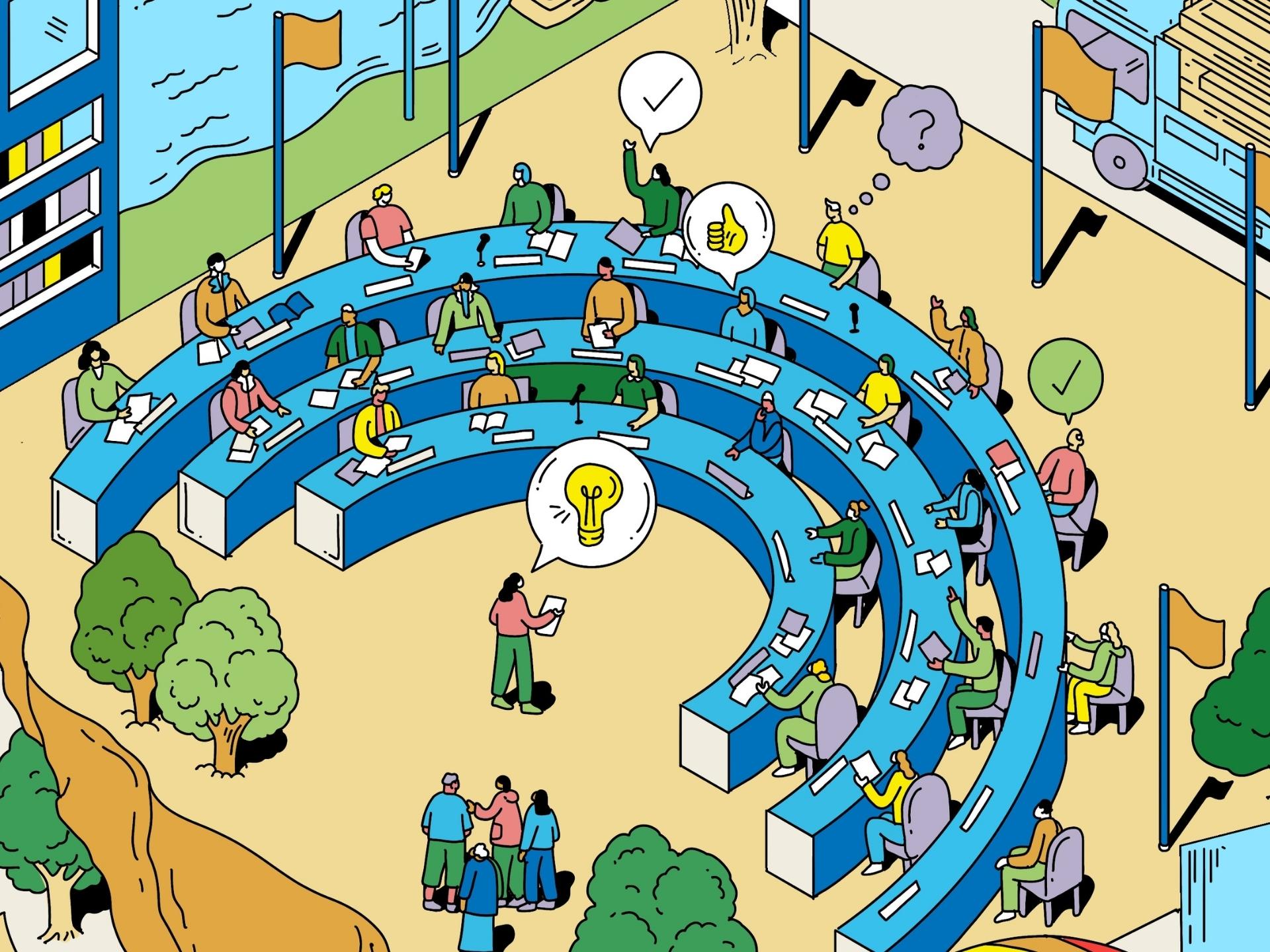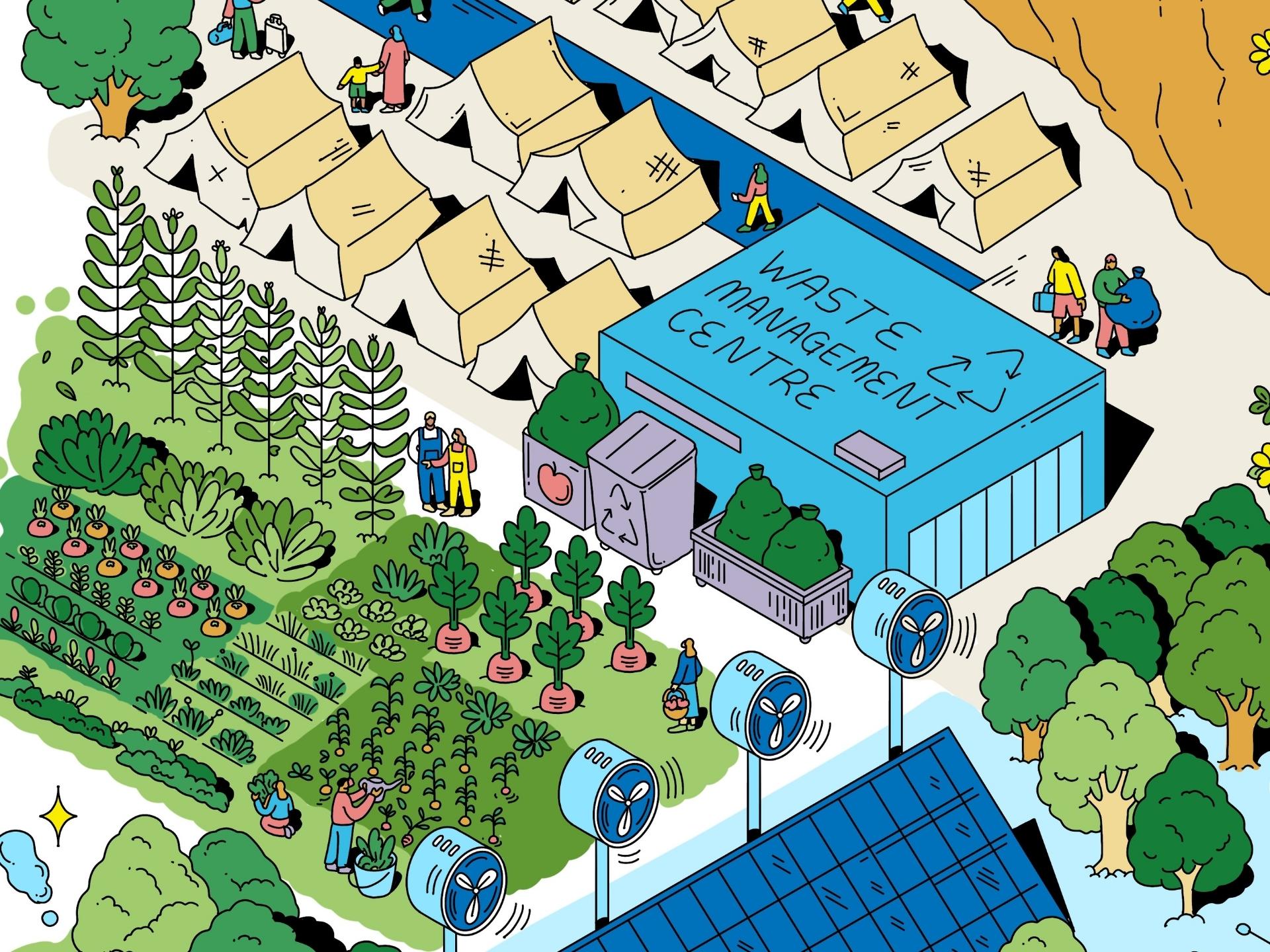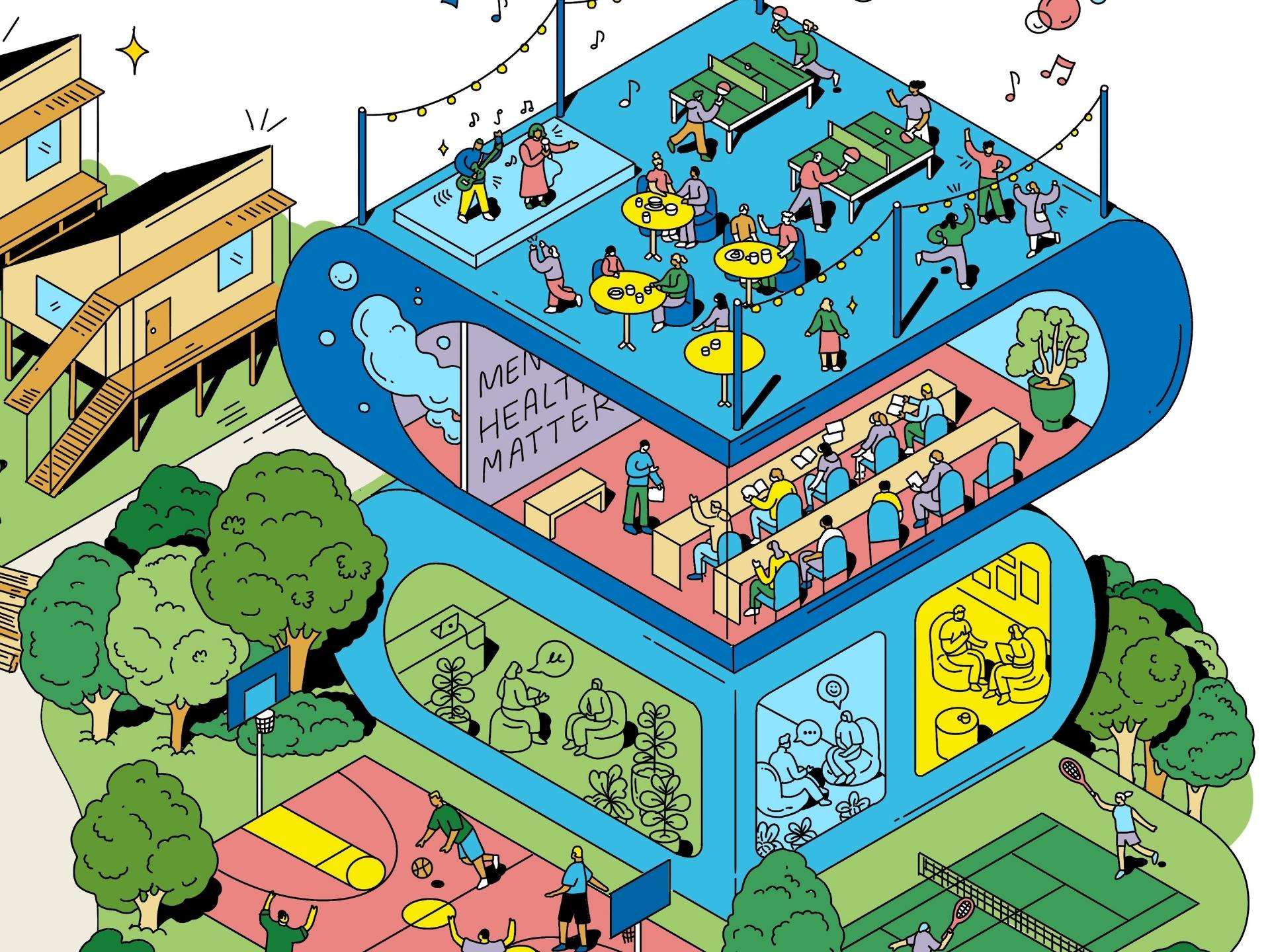“City of Hope” – Students worldwide shape the future of refugee solidarity
“City of Hope” – Students worldwide shape the future of refugee solidarity

Imagine a city where refugees are truly included. A city where refugees not only have a seat at the table, but benefit from democratic representation at the highest levels. A city where psychologists are trained to care for the mental health of refugees and spaces are dedicated to their wellbeing. A city where those affected by climate change are proactively relocated to safer areas and where carbon taxes finance resilient green infrastructures in refugee communities.
This “City of Hope”, imagined by students participating in UNHCR’s third edition of the Model United Nations (MUN) Refugee Challenge, has been visualized by artist Kathleen Fu. It incorporates the nine winning ideas that emerged from MUN debates that took place in 72 countries with the participation of over 19,000 students from middle school to university. See the full list of winning MUNs.
Here’s a closer look at each of the winning ideas constituting the City of Hope.
Text and media 1
Democratic refugee assembly
During the MUN in Singapore, students crafted a resolution to establish a globally elected assembly that would democratically represent diverse refugee demographics. The allocation of refugee members would be proportional to population size to enhance the representativeness of solutions devised by the assembly.
Text and media 2
Climate resilient infrastructure
Venezuelan students proposed channeling profits from emission reductions towards enhancing the climate resilience of refugee camp infrastructures, and promoting organic management practices.
Text and media 3
Psychological assistance for refugees
Students in Iraq focused their debates on mental health. They suggested training all psychologists to assist refugees, putting in place proper rehabilitation programmes, and subsidizing access to entertainment for refugees through cultural and sport activities.
Text and media 4
Stateless card with a pathway to citizenship
Participants in Italy suggested introducing a nationality card, inspired by the US green card model, in order to allow stateless people to become legally and socially identifiable, give them the right to work, and access to healthcare, and provide them with a pathway to citizenship.
Text and media 5
Proactive climate settlement planning
MUN delegates in Rwanda tackled the issue of climate-induced displacement. They recommended creating the “Safe Living Project” to resettle populations living in at-risk areas to safer places, and to restore those areas through tree planting. Climate emergency stations would communicate information about impending disasters.
Text and media 6
Global refugee employment system
In Canada, students developed ideas around the creation of an international employment system to provide job opportunities suitable for refugees that would allow them to be integrated into the local economy and receive equal pay for equal work.
Text and media 7
Data collection on statelessness
In Romania, participants addressed the need to improve data related to statelessness. They advocated for the implementation of annual surveys conducted by trained personnel to collect information on the demographics and needs of stateless individuals, as well as the underlying causes of statelessness.
Text and media 8
Digital assistance to fight discrimination
Delegates from Brazil discussed the development of a digital app aimed at assisting LGBTIQ+ refugees. The app would be designed to offer virtual support to individuals experiencing discrimination or restrictions related to their sexuality and identity.
Text and media 9
Safe housing for LGBTIQ+ refugees
In South Korea, MUN delegates also directed their attention to LGBTIQ+ refugees, with a particular emphasis on ensuring their physical safety. Students advocated for the establishment of inclusive healthcare systems and the availability of secure facilities and learning centres designed to cater to the specific needs of LGBTIQ+ refugees.
The City of Hope

By engaging youth through various initiatives, we hope to build Cities of Hope in the future.
Please contact [email protected] for questions related to youth engagement at UNHCR.









